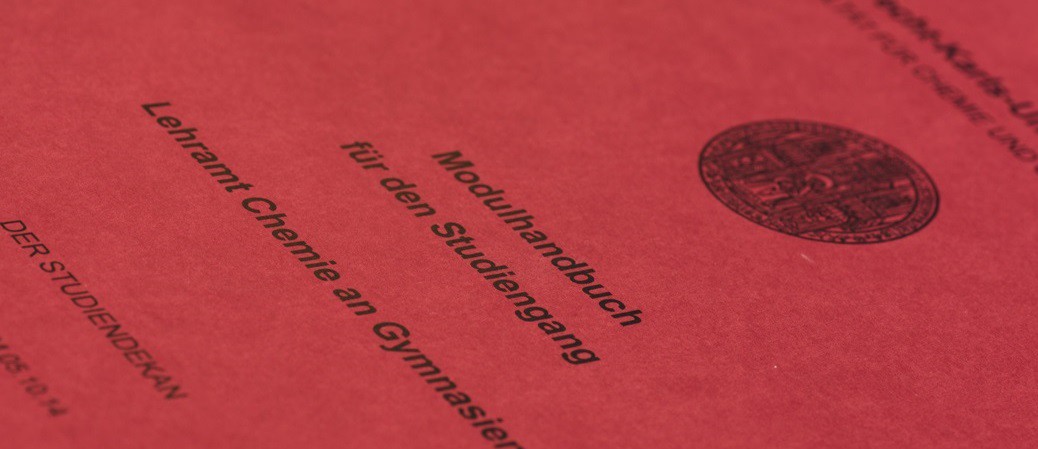Fast Facts
Informationen from the University
nach gymnasialer Prüfungsordnung
nach wissenschaftlicher Prüfungsordnung
Need of Application: Yes
Standard period of study: 10 semesters
Beginning of study: Winter semester (deadline: 15. Juli)
Contact (chemistry): Prof. Dr. Roland Krämer
n.V., INF 270, Zi.255, Tel. 54-84 38
n.V., INF 270, Zi.87, Tel. 54-84 51
Contact (teacher’s training in general): Zentrum für Lehrerbildung
The teaching degree in chemistry contains modules in anorganics, organics, physical chemistry and biochemistry. Additionally, there are two didactics modules. In contrast to the bachelor studies, the suggested timetable does not have to be followed strictly because it sometimes interferes with the second subject. The Modulhandbuch includes a suggestion of a timetable for each semester, which can be taken as a guideline. It is not necessary to follow this plan all the time, but in the first semesters, it is sensible to do the courses according to it, because all of the introductory lectures are required for further modules.
The first four semesters are the basic studies. They end with the Zwischenprüfung, which is not an individual exam. It is achieved by passing the modules AC_L1, AC_L2, OC_L1 and M1 (if the second subject is Maths, M1 is not needed).
Practical laboratory courses usually take part between the semesters. The first one is a six week basic laboratory couse, which is taken after the first or second semester. There is also a demonstration course in anorganics, which focuses on experimental presentations. It is thus recommended to do this course before the Schulpraxissemester. Further practical work consists of basic lab courses in organics and physical chemistry, and another demonstration course.
A lot of the first lectures are attended together with the bachelor students. However, there is also a seminar in the first two semesters, which is only for students doing the teaching degree. Here you always have the chance of asking any general questions about the studies. Alongside this seminar, there are six colloquiums, i.e. short oral exams. The passing of these exams is required for participating in the first practical lab course.
Compared to other subjects, the lab courses as well as tutorials and practise groups alongside the lectures make the subject of chemistry relatively time-consuming. After taking the first courses, you can find out how many courses you are able to take each semester. It is often reasonable to attend one lecture too many at the beginning of a semester. You can always cancel it later and start again the next semester.

